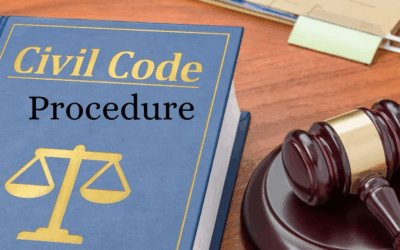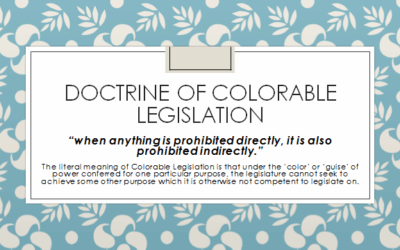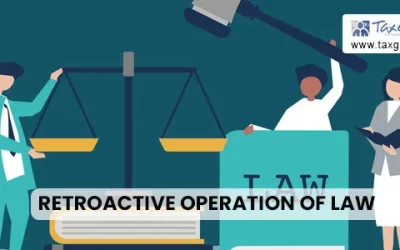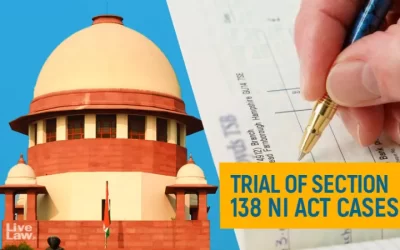Blogs
We bring thoughtful and reliable legal perspectives to help you understand matters that impact you.
Latest Blogs
More results...
Doctrine of Eclipse and Severability: Safeguarding Constitutional Integrity
This post explores two pivotal doctrines in constitutional law: the Doctrine of Eclipse and the Doctrine of Severability. The Doctrine of Eclipse addresses the temporary inoperability of laws that conflict with fundamental rights, allowing them to revive if the conflict is later resolved. The Doctrine of Severability ensures that unconstitutional portions of a statute can be removed without invalidating the entire law. Together, these doctrines uphold the supremacy of the Constitution while preserving legislative intent wherever possible.
Doctrine of Colorable Legislation and Retrospective Laws: Limits of Legislative Power
This post explores two critical constitutional doctrines that define the boundaries of legislative authority in India: the Doctrine of Colorable Legislation and the Doctrine of Retrospective Legislation. It examines how these principles prevent legislative overreach—whether by disguising unauthorized actions under lawful guise or by enacting laws with backward effect. Through key case law and constitutional interpretation, the article analyzes how courts scrutinize legislative intent and uphold the rule of law.
M. Ashok Kumar & Ors. vs. The Theyarayanagar Fund Ltd
This post outlines the facts of a civil dispute involving Mr. M. Ashok Kumar and Mr. A. Mallika, who allege coercion and deceptive practices by The Theyarayanagar Fund Ltd. in connection with a ₹7.2 lakh loan. The plaintiffs claim they were misled into signing documents and pressured to attach their property without justification. The case raises important questions about financial ethics, consumer protection, and the legal boundaries of loan recovery practices.
Double Jeopardy: Shield Against Repeated Prosecution
This post explores the doctrine of double jeopardy, a constitutional safeguard that protects individuals from being tried twice for the same offense. It examines the legal foundations under Article 20(2) of the Indian Constitution and compares its application across civil and criminal proceedings. Through case law and statutory interpretation, the article clarifies the scope, exceptions, and relevance of this principle in modern jurisprudence.
Doctrine of Retrospective Legislation: Legal Scope and Implications
This post explores the doctrine of retrospective legislation, a principle that allows laws to operate backward in time under specific conditions. It examines the constitutional boundaries, judicial interpretations, and potential conflicts with fundamental rights. By analyzing key case law and statutory frameworks, the article clarifies when retrospective laws are valid, and how they impact civil liberties, taxation, and criminal liability.
DEATH PENALTY: A NECESSARY EVIL?
Is capital punishment a justified tool for justice or a relic of retributive violence? This post critically examines the moral, legal, and societal dimensions of the death penalty. It explores arguments from both abolitionist and retentionist perspectives, referencing global trends, landmark cases, and ethical frameworks. Readers are invited to reflect on whether the death penalty serves justice—or undermines it.
Dismissal of Suits Upon Reference to Arbitration: Legal Implications
When a dispute is referred to arbitration, the corresponding civil suit may be dismissed by the court under certain legal provisions. This post explores the legal rationale behind such dismissals, referencing relevant statutes and judicial precedents. It also clarifies the distinction between stay of proceedings and outright dismissal, helping litigants and legal professionals navigate arbitration clauses effectively
The legal principles governing liability for individuals in cheque dishonour cases
This study examines the legal principles governing liability ...
Family/ Divorce
Under Hindu Law, specific grounds allow a person to file for a divorce petition











